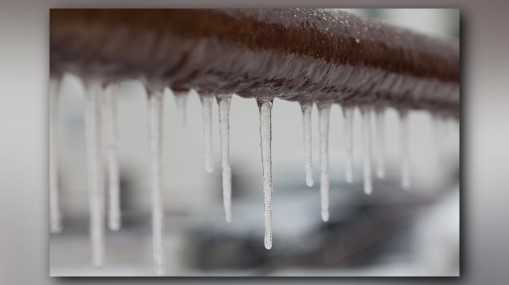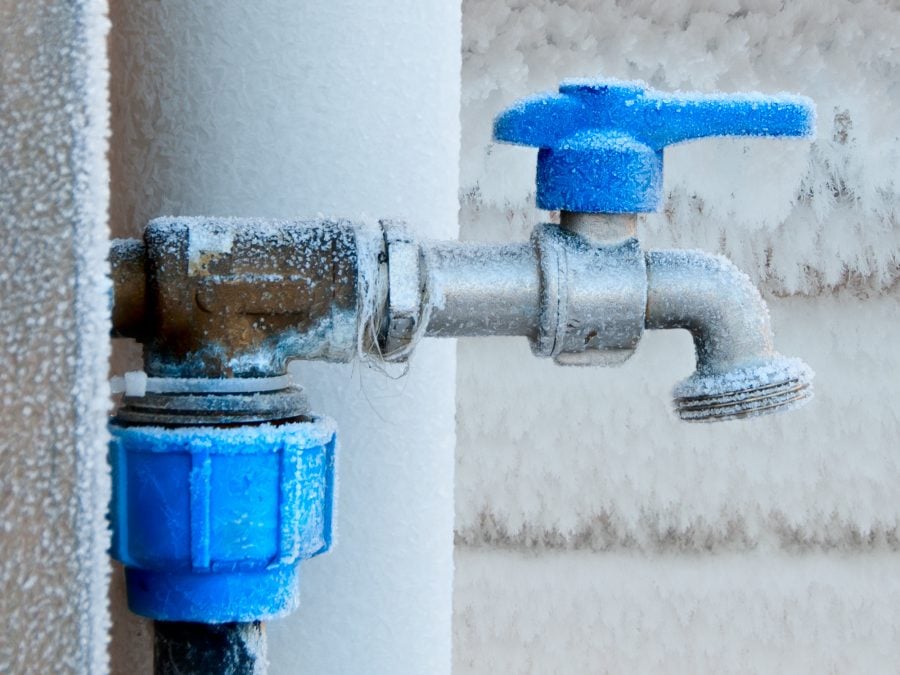Ways to Safeguard Your Pipes from Freezing: Professional Advice
Ways to Safeguard Your Pipes from Freezing: Professional Advice
Blog Article
How do you feel about Helpful Tips to Prevent Frozen Pipes this Winter?

Cold weather can ruin your plumbing, specifically by freezing pipes. Below's exactly how to avoid it from occurring and what to do if it does.
Intro
As temperatures decline, the danger of frozen pipelines increases, potentially bring about expensive fixings and water damage. Recognizing just how to prevent frozen pipelines is essential for property owners in chilly environments.
Prevention Tips
Protecting susceptible pipelines
Cover pipes in insulation sleeves or make use of warm tape to shield them from freezing temperatures. Focus on pipes in unheated or exterior locations of the home.
Home heating methods
Maintain indoor areas appropriately heated up, especially locations with pipes. Open up cabinet doors to permit warm air to distribute around pipes under sinks.
Exactly how to identify frozen pipelines
Seek reduced water circulation from faucets, uncommon smells or noises from pipelines, and noticeable frost on revealed pipes.
Long-Term Solutions
Architectural changes
Take into consideration rerouting pipes away from exterior walls or unheated areas. Include added insulation to attics, basements, and crawl spaces.
Upgrading insulation
Buy premium insulation for pipes, attic rooms, and wall surfaces. Correct insulation aids preserve constant temperatures and minimizes the danger of frozen pipelines.
Safeguarding Exterior Pipes
Yard hose pipes and outdoor faucets
Separate and drain pipes yard pipes prior to winter season. Mount frost-proof faucets or cover outside faucets with protected caps.
Recognizing Frozen Pipelines
What causes pipelines to freeze?
Pipes freeze when revealed to temperature levels below 32 ° F (0 ° C) for prolonged periods. As water inside the pipelines freezes, it expands, taxing the pipe wall surfaces and possibly creating them to rupture.
Threats and problems
Frozen pipes can cause water disturbances, residential or commercial property damage, and costly repairs. Ruptured pipes can flood homes and create substantial architectural damages.
Indicators of Frozen Pipeline
Identifying icy pipelines early can prevent them from breaking.
What to Do If Your Pipes Freeze
Immediate actions to take
If you believe icy pipes, keep taps open up to relieve pressure as the ice melts. Use a hairdryer or towels soaked in warm water to thaw pipes gradually.
Conclusion
Avoiding frozen pipes calls for proactive measures and quick feedbacks. By understanding the causes, indicators, and preventive measures, property owners can shield their pipes throughout cold weather.
Helpful Tips to Prevent Frozen Pipes this Winter
UNDERSTANDING THE BASICS: WHY PIPES FREEZE AND WHY IT’S A PROBLEM
Water freezing inside pipes is common during the winter months, but understanding why pipes freeze, and the potential problems it can cause is crucial in preventing such incidents. This section will delve into the basics of why pipes freeze and the associated problems that may arise.
THE SCIENCE BEHIND FROZEN PIPES
When water reaches freezing temperatures, it undergoes a physical transformation and solidifies into ice. This expansion of water as it freezes is the primary reason pipes can burst. As the water inside the pipe freezes, it expands, creating immense pressure on the walls. If the pressure becomes too great, the pipe can crack or rupture, leading to leaks and water damage.
FACTORS THAT CONTRIBUTE TO PIPE FREEZING
Low Temperatures: Extremely cold weather, especially below freezing, increases the risk of pipes freezing. Uninsulated or Poorly Insulated Pipes: Pipes located in unheated areas, such as basements, crawl spaces, or attics, are more prone to freezing. Insufficient insulation or lack of insulation altogether exacerbates the problem. Exterior Wall Exposure: Pipes running along exterior walls are susceptible to freezing as they encounter colder temperatures outside. Lack of Heating or Temperature Regulation: Inadequate heating or inconsistent temperature control in your home can contribute to frozen pipes. PROBLEMS CAUSED BY FROZEN PIPES
- Pipe Bursting: As mentioned earlier, the expansion of water as it freezes can cause pipes to burst, resulting in significant water damage.
- Water Damage: When pipes burst, it can lead to flooding and water damage to your property, including walls, ceilings, flooring, and personal belongings.
- Structural Damage: Prolonged exposure to water from burst pipes can compromise the structural integrity of your home, leading to costly repairs.
- Mold and Mildew Growth: Excess moisture from water damage can create a favorable environment for mold and mildew growth, posing health risks to occupants.
- Disrupted Water Supply: Frozen pipes can also result in a complete or partial loss of water supply until the issue is resolved.
WHY CERTAIN PIPES ARE MORE PRONE TO FREEZING
- Location: Pipes located in unheated or poorly insulated areas, such as basements, crawl spaces, attics, or exterior walls, are at higher risk of freezing.
- Exterior Pipes: Outdoor pipes, such as those used for irrigation or exposed plumbing, are particularly vulnerable to freezing as they are directly exposed to the elements.
- Supply Lines: Pipes that carry water from the main water supply into your home, including the main water line, are critical to protect as freezing in these lines can affect your entire plumbing system.
- Underground Pipes: Pipes buried underground, such as those connected to sprinkler systems or outdoor faucets, can be susceptible to freezing if not properly insulated.
https://busybusy.com/blog/helpful-tips-to-prevent-frozen-pipes-this-winter/

Do you like reading up on 6 Ways to Prevent Frozen Pipes? Give feedback further down. We will be pleased to listen to your feelings about this article. Hoping that you visit us again in the near future. Sharing is caring. You just don't know, you will be doing someone a favor. Thanks so much for going through it.
Source This Article Report this page